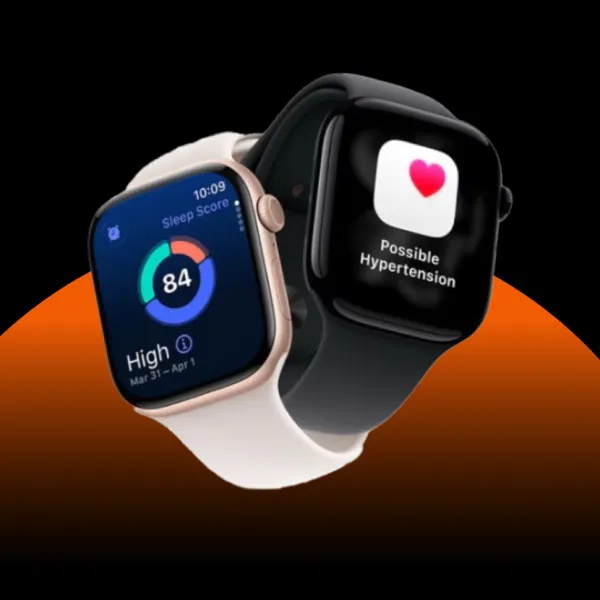Govt Rolls Out Uniform Code for Pharmaceutical Marketing Practices 2024

Led by the Ministry of Chemicals and Fertilizers, this initiative aims to address misleading promotional activities and promote responsible marketing within the pharmaceutical sector.
The Union Government has rolled out Uniform Code for Pharmaceutical Marketing Practices (UCPMP) 2024, to curb unethical practices within the pharmaceutical industry.
Led by the Ministry of Chemicals and Fertilizers, this initiative aims to address misleading promotional activities and promote responsible marketing within the pharmaceutical sector.
The UCPMP guidelines encompass various aspects such as drug endorsement, promotion, ethical conduct for medical representatives, and maintaining relationships with healthcare professionals.
The new regulation aims to promote transparency, integrity, and accountability in the marketing of pharmaceutical products.
To Recap
Discussions on the UCPMP commenced earlier to address concerns regarding misleading marketing practices, inappropriate incentives, and transparency issues in the pharmaceutical sector.
The government aimed to establish a robust framework fostering ethical behavior among pharmaceutical companies and their representatives.
Despite objections from some stakeholders during formulation, particularly regarding constraints on promotional activities and potential sales impacts, critics warned that stringent regulations might hinder innovation and information access.
Nevertheless, the Central Government and the Department of Pharmaceuticals (DoP) under the Ministry of Chemicals and Fertilizers officially announced the UCPMP 2024 on March 12, 2024.
The implementation process will entail educating pharmaceutical firms, training their representatives, and ensuring adherence to the code. The UCPMP 2024 is poised to significantly influence industry practices and bolster responsible marketing efforts.
What’s New in this Marketing Regulation?
The latest regulations prohibit pharmaceutical companies from offering gifts, arranging travel, or providing hospitality to healthcare professionals or their families.
The code sets stringent standards for pharmaceutical marketing practices, covering areas including medical representatives, promotional materials, samples, and gifts.
According to the UCPMP, "No gift should be offered or provided for the personal benefit of any healthcare professional or family member (both immediate and extended) by any pharmaceutical company or its agent i.e. distributors, wholesalers, retailers, etc."
Likewise, pharmaceutical companies and their agents are prohibited from offering any financial or material benefits to individuals authorized to prescribe or supply drugs.
Additionally, travel facilities, including transportation and accommodations, should not be provided to healthcare professionals or their families for attending events.
Furthermore, cash payments or grants to healthcare professionals or their families are strictly prohibited under the latest pharmaceutical code.
Drug Promotion Requires Marketing Approval
Per the latest guidelines, pharmaceutical companies are instructed to promote drugs only after receiving marketing approval from the competent authority.
Moreover, information provided about drugs must be balanced, up-to-date, and verifiable, without misleading claims or comparisons regarding usefulness or safety.
The code has further strictly refrained pharma companies from using the term "new" for drugs available or promoted in India for over a year.
According to the code, drug firms must maintain detailed records, including product names, doctors' names, sample quantities distributed, and dates of distribution to healthcare practitioners.
The code also limits the total value of distributed samples to 2% of the company's domestic sales annually.
It specifies promotional methods as well for both textual and audio-visual mediums, emphasizing the drug's name, along with its active ingredients using generic names, which must be positioned next to the prominently displayed drug name.
Recommended dosage, method of use, and administration details should also be provided. Additionally, information regarding adverse reactions, warnings, precautions, and other relevant details must be included, as per the uniform code.
Further specifying promotional materials, the UCPMP code restricts from featuring names or photographs of healthcare professionals.
Free drug samples should only be provided to qualified prescribers and marked as "free medical sample not for sale." Each sample pack should be of standard size, not larger than typical minor packs available in the market.
Furthermore, pharmaceutical companies are restricted from supplying samples of hypnotic, sedative, or tranquilizer drugs. Samples should be directly handed to qualified prescribers, according to the code.
For medical representatives, the code said that pharma companies should not employ any inducement or subterfuge to gain an interview.
Further, the medical representatives must not pay, under any guise, for access to a healthcare professional.
Addressing Complaints & Violations
The Union Ministry of Chemicals and Fertilizers has directed Pharmaceutical Associations to establish an Ethics Committee for Pharmaceutical Marketing Practices (ECPMP) and create a dedicated UCPMP portal on their websites.
Any reported violations will be handled by the ECPMP committee, comprising three to five members chaired by the CEO of the board.
Committee appointments require approval from the Association's Board and must be publicly disclosed on the Association's website, per DoP guidelines.
The code also outlines penalties for violations and procedures for lodging complaints.
Complaints against pharmaceutical companies must be filed with a non-refundable fee of INR 1,000. Pseudonymous or anonymous complaints, as well as those submitted without the prescribed fee, will not be considered.
Additionally, code violations reported in the media will be treated as complaints.
Upon receiving notice from the Committee, companies found in violation must provide comments and supporting documents within 30 days. The Committee will issue a decision within 90 days of receiving the complaint.
In case of breach, both the complainant and the company will receive written advisories, outlining remedial steps. Failure to appeal within the specified period renders the ECPMP decision final and binding.
Additionally, the decisions will be published on the Association and Department of Pharmaceuticals' websites.
Penalties may include suspension or expulsion from the association, reprimand, publication of the violation, or issuance of corrective statements in the media.
Further, entities may be required to recover unlawfully provided money or items. The code specifies that the CEO holds responsibility for ensuring code compliance.
Unethical Practices Marring the Pharma Industry
India's pharmaceutical industry, often lauded as the "pharmacy of the world," stands as a cornerstone in global healthcare, boasting a robust valuation of approx $42 billion in 2021.
With projections soaring to $130 billion by 2030, India emerges as the leading provider of generic medicines by volume, contributing a significant 20% to total global pharmaceutical exports.
Access to medicines remains paramount for safeguarding individuals against illnesses. However, for economically disadvantaged segments of society, a considerable portion of their income is earmarked for medical expenses.
In November 2022, Indian households reportedly expended over INR 120 billion on healthcare-related costs, with medicines constituting 42.3% of all health-related spending.
Despite slight increases from INR 3,632 in FY 2018 to INR 3,638 in FY 2022, the average Indian household's healthcare expenses remain subject to fluctuations influenced by events such as the COVID-19 pandemic.
Despite strides made over the years, over 90 million Indians reside in households where healthcare expenses surpass 10% of total expenditure, with 31 million in families where health-related costs exceed a quarter of household spending.
Despite progress, out-of-pocket expenditure on healthcare continues to weigh significantly on individuals.
Addressing unethical practices within pharmaceutical companies is imperative, particularly those aimed at inflating medication prices. The health outcomes of patients are directly influenced by the medications prescribed to them.
Instances of doctors prescribing high-potency doses or non-scheduled drugs not regulated under the Drug Price Control Order (DPCO) may lead to adverse effects, sometimes surfacing only after prolonged periods.
Additionally, instances of overprescription, such as unnecessary multivitamins not only escalate medicine consumption but also burden patients with unnecessary expenses.
Rectifying these practices is crucial to ensuring patients receive appropriate and affordable medical care.
The UCPMP code, which has been updated from time to time, aims to curb unethical practices within pharmaceutical companies.
Stay tuned for more such updates on Digital Health News





























